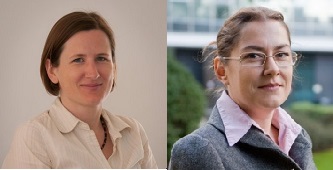Julie Broome is Director of Programmes with the Sigrid Rausing Trust
Iva Dobichina is a Programme Manager with the Open Society Foundations Human Rights Initiative
Over the past year we have met with literally hundreds of our partners around the world. While the challenges of their work remain incrementally related to the context where they are operating – whether ensuring that Roma children go to school in most of Europe, working to prevent businesses from abusing rights in Southeast Asia, trying to effect democratic change in North Africa, holding ground for alternative voices to be heard in Eurasia or defending the rights of LGBTI communities is East Africa—a growing struggle for all of them is to prevent the united forces of governments—open, closed, in transition—to restrict civic space. In all regions around the globe, civil society is repressed and in most places restrictive provisions are enacted into law. The backlash against civil society has taken many forms: activists have been demonised as agents of foreign influence and interests; anti-money laundering, anti-terrorism and anti-extremism laws have been applied disproportionally to restrict space for alternative opinion; registration procedures for NGOs have been made more cumbersome and foreign funding restricted; while new legal provisions have been put into place limiting expression, assembly and the right to information.
According to ICNL, since 2012 over 100 laws restricting registration, foreign funding, and freedom of assembly have been passed or proposed in every region, targeting not just democracy and human rights organizations, but humanitarian and other development NGOs as well. The pushback is taking place not only in authoritarian countries, but also in democracies such as India, Spain and Hungary. Each government has its own reasons for restricting civil society, but there are common threads. In countries like Russia and Azerbaijan, governments’ fears of their own largely disenfranchised publics in the wake of the Arab Spring and the Euromaidan protests are clearly a major factor. In countries as disparate as India and Russia, suspicion of foreign governments has clearly been a driving force. In some developing countries, meanwhile, governments have cracked down on civil society, or allowed corporations to do so, in order to protect lucrative business deals from scrutiny by environmental, accountability, land or economic rights NGOs. Finally, governments are cracking down on civil society as they see other governments doing so successfully, copying laws and practices they see being implemented elsewhere (including in the western democracies as part of the so-called War on Terror), encouraged in many cases by the lack of domestic or international pushback these repressive measures have occasioned.
In many places around the world it is now easier to open a business than to start an NGO. While the private sector has increased its role in governance at both the national and global levels and foreign investment is considered to be beneficial, foreign aid is seen with a skeptical eye. States are happily outsourcing basic services to private interests, diluting accountability as a consequence, but at the same time they are suspicious of CSOs working on environmental issues in South East Asia or the Amazon, demanding accountability and providing support systems for mothers who have lost their sons in the Russian military, or working on women rights issues in Latin America. As donors, we are concerned about the threat to our grantees who represent alternative voices or are on the frontlines of the struggles for fair development and human rights. This challenge used to be limited to organizations working on the most controversial issues such as elections, accountability for grave abuses and torture and mistreatment in prison systems, but a wide variety of organizations are now affected. Environmental donors and activists, land rights activists, aid agencies and groups providing humanitarian relief have come under attack in countries such as Russia, Azerbaijan, Egypt and India. In fact, many of the worst acts of repression and intimidation have been against NGOs working on environmental issues and the protection of land rights.
Civil society remains an important check on state (and sometimes corporate) power and has an important role to play in a healthy democratic society. Though a certain level of regulation is both necessary and desirable, we are concerned about the excesses to which states have been driving. To date donors have largely been reactive to the specific challenges their own grantees are facing but have failed to address the broader trend towards restricting civil society. There is a growing need to develop stronger narratives about the important role of CSOs that go beyond traditional human rights rhetoric in order to address some of the legitimate concerns of aid receiving governments. Foundations and other private philanthropies should work together to publicly promote the right of civil society organizations to seek and receive funding including from international sources. We also need to take what Carothers calls a ‘whole-of-government approach’ when dealing with aid-providing governments. It is no longer enough to engage just foreign ministries. Government agencies dealing with trade, the banking sector, etc, should also be involved in the debates around space for civil society because in many cases restrictions to civil society are enacted under the guise of compliance with standards set by global financial institutions. We need to speak across sectors and identify common interests and allies if we are to protect the space for civil society to function effectively.




